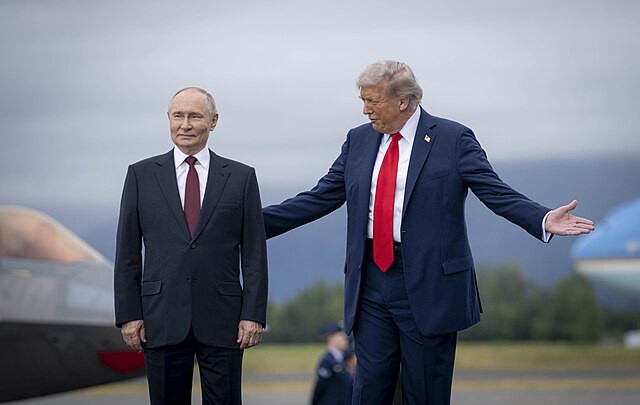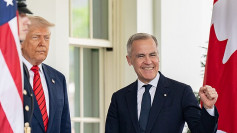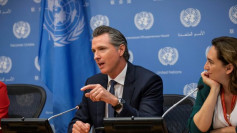President Donald Trump on Thursday directed the Pentagon to immediately resume U.S. nuclear weapons testing, ending a moratorium that has lasted more than three decades and triggering warnings from Moscow that it could respond in kind. The announcement came just minutes before Trump met Chinese President Xi Jinping for trade negotiations in Busan, South Korea.
"Because of other countries testing programs, I have instructed the Department of War to start testing our Nuclear Weapons on an equal basis. That process will begin immediately," Trump wrote on Truth Social while aboard Marine One. He added, "Russia is second, and China is a distant third, but will be even within 5 years."
The move marks the first directive of its kind since the U.S. ceased explosive nuclear testing in 1992. No major nuclear power, apart from North Korea in 2017, has conducted such a test in the past 25 years. Trump's decision appears aimed at signaling strength toward both Russia and China, which have been modernizing their arsenals and conducting related weapons trials in recent weeks.
Speaking later aboard Air Force One, Trump told reporters, "With others doing testing, I think it's appropriate that we do also," adding that the test sites would be determined later. When asked if he feared a return to Cold War-era tensions, he replied, "I'd like to see a denuclearisation because we have so many and Russia's second and China's third and China will catch up within four or five years."
The Kremlin quickly responded to the U.S. announcement. "Trump mentioned in his statement that other countries were allegedly testing nuclear weapons. Until now, we were not aware that anyone was testing anything," Kremlin spokesman Dmitry Peskov said, according to NBC News. He added, "If someone abandons the moratorium, Russia will act accordingly." Peskov clarified that Russia's recent tests of the Burevestnik missile were not nuclear detonations, calling them "not a nuclear test."
The renewed friction comes after Moscow carried out multiple high-profile weapons trials in October, including a nuclear-powered cruise missile and an autonomous underwater torpedo. President Vladimir Putin claimed Russia had successfully tested the Poseidon nuclear-powered "super torpedo," which analysts say could devastate coastal regions by triggering massive radioactive waves.
Meanwhile, China's Foreign Ministry urged Washington to uphold its long-standing commitment to a global moratorium on nuclear testing. Beijing warned that breaking the informal ban could destabilize "strategic balance and international security."
Trump's order follows years of concern among U.S. defense officials over China's rapidly growing nuclear arsenal. According to the Center for Strategic and International Studies, China has more than doubled its warhead count-from 300 in 2020 to roughly 600 in 2025-and may exceed 1,000 by 2030. The U.S. currently possesses 5,225 nuclear warheads, while Russia holds 5,580, according to the Arms Control Association.
The announcement provoked strong criticism in Washington. Rep. Dina Titus (D., Nev.) said on X, "I'll be introducing legislation to put a stop to this." Daryl Kimball, director of the Arms Control Association, called the plan "misinformed and out of touch," arguing that it could "trigger a chain reaction of nuclear testing by U.S. adversaries, and blow apart the nuclear Non-Proliferation Treaty."
Russia has signaled it will not immediately restart testing but remains wary. Asked whether Trump's directive could spark an arms race, Peskov replied, "no," but reiterated that Moscow would defend its strategic interests if provoked.






